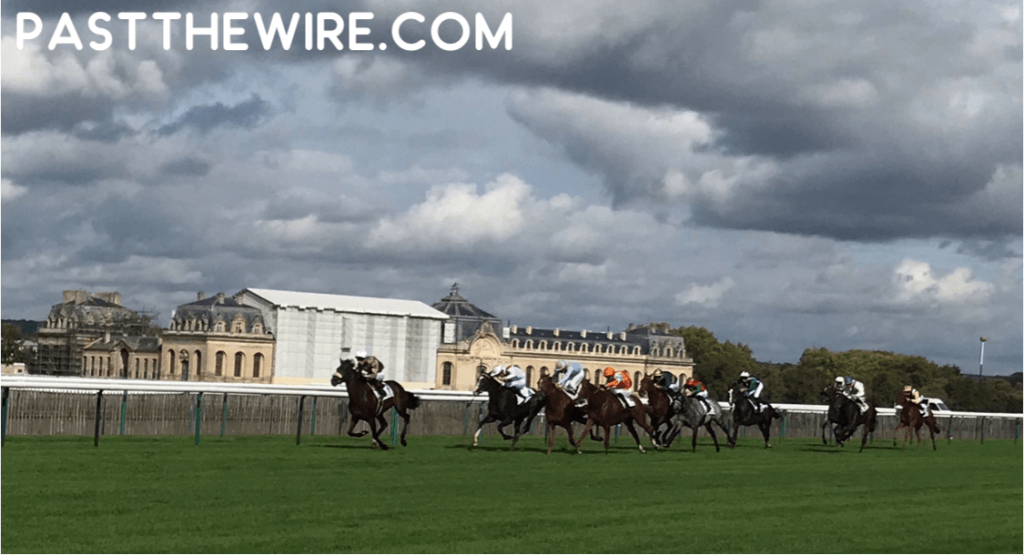
I remember, back in the day, when we’d occasionally go from the races at Aqueduct or Belmont for a nightcap doubleheader at the Meadowlands. It was during one of those trips, a long time ago, that I began to develop the skill of knowing how to watch a race and recording what I had just seen.
The horse in question was named Game something, I believe, and I felt he was surely worth the long day and night of racing involved for the New York to New Jersey doubleheader. He was either two or three, and was running in a minor stakes race at the Meadowlands after breaking his maiden in New York. The colt was trained by John Campo and was being ridden that night by, none other than Angel Cordero. I had watched his maiden breaker and was visually impressed. There was no watch or stable mail back then, so I kept a spiral notebook of notes on horses and he earned his way into it.
There were maybe five or six friends and associates with me that night, also doing the doubleheader. They were believers in my notebook and had all come to bet the horse. There were no ADW’s or legal phone accounts, so if you liked a horse you had to actually go and bet it.
We all bet and knocked the odds down quite a bit. The horse went from 8-1 or so on the morning line all the way down to 5-2. He was the second choice. It was a small field of maybe 6 or 7 runners. He broke slowly from the inside and, just after the break, I noticed Cordero’s left foot came out of the stirrup. As the horse advanced rapidly up the inside, I saw Angel try with his left hand to put his foot back in the stirrup. The first two times he was unsuccessful but on the third time he got it and that coincided with the horse making up the ground he lost as a result of the slow break. He was now ready to roll and sitting second on the inside going into the far turn of the six furlong sprint.
Once Angel was back comfortably in the saddle, the action on the horse, which was never bad despite the mishap, improved dramatically. He had winner written all over him and just came up the inside turning for home and rolled to a nice three length win. Angel did his famous fist pump at the wire and we all high fived and celebrated our profitable trip. The win was owed, not only to the notebook I kept but, to the athleticism and competitiveness of Angel Cordero, unquestionably one of the best ever.
After the race, when we were all enjoying the win and reflecting on it, I commented on how lucky we were to get it. While everyone saw the slow break nobody thought it was slow enough to cost us the win and all agreed the horse made up the ground quickly and easily. To my surprise not one of these seasoned bettors and handicappers saw what I had. Did you see that, I asked. No, was the universal answer. Nobody with me saw Angel lose his stirrup and take maybe 3/16ths of a mile at least to get it back. They didn’t see the two failed attempts or the third successful one.
I learned something very valuable that night. If you truly understand the nature of pari-mutual wagering – that we are all playing and wagering against one another and not “the house” – then you will surely agree that, seeing things others miss, clearly gives you an advantage. From this, I learned to watch a race even more closely and to look for the things that have an impact others ignore. Suffice to say, I needed a lot of spiral notebooks after that.
Human nature and natural instinct work against the handicapper in many ways. Properly reading past performances is one of them but that is a subject for another column. Watching races is another. The normal inclination when watching a race is to watch who is in front, or to look for who you bet. Any other way of watching a race is a learned or trained art, no different than a trainer watching a horse jog or a clocker watching a horse work. You have to know what to look for and how to spot it.
Learn How to Watch a Horse Race
To learn how to properly watch a horse race, I would suggest not starting with a television view. Then you are merely watching what the camera man is watching. You want to watch what is going to help you. My suggestion is to get to your local racetrack. Find a nice spot on the far turn where they are coming towards the stretch. You know, like that spot at Aqueduct with the hole in the fence for all those years where you could spot my head, on afternoons I should have been in school. And I don‘t care what “they” say, that hole was there when I got there. Watching a horse race from a spot like this will open your eyes to real horse racing not televised racing. You will hear who is gasping and who is snarling, you’ll hear riders yelling, you’ll see bumping, aggressiveness, fear, and determination. All elements of every horse race you can’t see or feel from monitors. Bring a notebook or tablet; you’ll need it.
Once you do this, and go back to the monitor, things should look a little different. Now, we actually know what we are looking at. When watching a horse race, train yourself to watch horses making up ground, not who is in front, and horses who are caught in pockets, not who you bet. Future winners often come out of these positions. Ultimately, you will have a trained eye and see your horse and who is in front, anyway. It’s a learned exercise. You can always cheat at the 3/16ths pole and pick up your horse again. Look for what others miss or don’t see. Who is running against the bias, which had another horse dogging him the whole way and who looked loaded but never got clear?
Today, I use stable mail from Brisnet for many of my notes. This is my personal choice as I love the options and how it is so user friendly. If you are truly a professional, use it as a business, not a fantasy game or as a fan. It’s a fantastic tool, as good as the person watching and entering the notes. You will get paid time and time again.
In closing, let’s put it into recent perspective with some of my observations from Saturday’s Whitney. What did I see? I saw what I have preached to many readers for a while now – horses aren’t machines. A horse player assumes they will just do the same thing every time, a handicapper studies why and when they won’t. Palice Malice is still the top older horse, at least for now. Nothing Saturday changed that. He was in the fifth race of a strong form cycle and just tailed a bit. Palice Malice just ran a dud. Most horses do, at some point. Moreno showed us that under optimum conditions, on the right day, he can beat top horses, not that he is one. He set steady :23 and change quarters with minimal pressure over a track he liked.
Itsmyluckyday was the trip note horse, in my opinion. He was thrown into the deep end of the pool, off three very handily wins. He stayed game the whole way and never stopped trying to run down the lone speed despite weaving some in the stretch. He’s a nice horse and just as good, if not better than the winner. He was entitled to need one with the big boys before showing his best. Departing is just not on this level, not now anyway. Will Take Charge is honest and tough, but needs all of a mile and a quarter to be at his best. The race was run fairly and even and the horse who got the best trip and conditions won as the main, if not lone, speed.
High 5
Irad Ortiz gets this for his ride on Ever Rider in the 4th race on Friday. I thought this was as good a ride as we’ve seen this meet so far and Irad looked like mentor Angel Cordero in the stretch. Not something that’s easy to do.
Low 5
Steve Asmussen and Scott Blasi.
Horse to Watch
Face the Music. This royally bred 2-year-old colt from Shug debuted on the Spa lawn going a mile and a sixteenth. He took back and covered up before launching a nice rally for second, losing to a well-regarded first timer from Graham Motion. This is one nice colt and will improve and go forward off the race. I see stakes potential.





